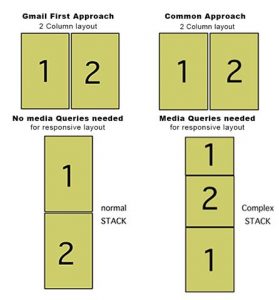— January 25, 2019
We’ve all heard of that holy grail of work/life balance. In the digital age, it can seem nearly impossible to achieve: our businesses are directly in our phones and laptops, and the urge to ignore the frantic ping of an email notification can insatiable.
Work/life balance is especially hard for me to wrap my mind around because I work from home. My work life and my home life are the same thing. It’s flexible and it’s wonderful, but it’s also barely controlled chaos. As a mother of two toddlers, packing up my computer and heading to the nearest coffee shop to work isn’t an option. I find myself scarfing breakfast at my desk, yet chastising my children for not eating their meals at the table like civilized people. Last week, my fiercely independent daughter decided to potty train herself by using my favorite cast iron pot as a toilet, and I was so deep in an assignment that I didn’t notice until my son brought me the evidence in a panic. Like I said, chaos.
Though total work/life balance might not be a viable option for me, I think we can all benefit from setting boundaries and learning how to separate our work lives from our home lives. Research says this makes for healthier adults that might even live longer. Yikes. That’s enough for me to investigate how people manage to have it all. Take these tips from the pros for achieving the right work/life balance:
1. Learn How To Say No
Career and lifestyle coaches say this one of the key aspects of striking the appropriate balance, both at work and at home. Trying to be perfect and play every possible role only leads to burnout and eventual failure. Saying “no” when it’s warranted can go a long way in improving your life and your work environment. Whether it’s picking up a coworker’s slack or acquiescing to yet another request to run the basketball team carpool, unnecessary stressors exist everywhere. It’s your job to figure out what matters, and what doesn’t. Learning how to say no can lift a heavy burden that you might not even realize is there.
2. Create Work Boundaries
Flexible work schedules are more widespread than ever, and they’re often a perk that potential employees look for in their job searches. Millennial employees find flexible schedules especially important according to a Deloitte survey, but this added flexibility comes with a dark side. Employees are now accessible 24/7, which can lead to some issues with boundaries and perceived availability. If you have a flexible schedule and find yourself fielding emails and conference calls with your boss around the clock, it’s time for a sit down. Formally discuss expectations and what happens when you’re off of company time, from answering emails to fielding phone calls. When you both have clear expectations of one another, you’re less likely to fall into the trap of working around the clock.
3. Prioritize Your Time
At the end of each workday, take a few minutes for introspection and think about what went well, and where you experienced bumps in the road. Did you spend your time wisely? What was the most productive, and what made you the least productive? This will help you hone in on a schedule that works for you. For my part, I had to learn the hard way that working after lunchtime rarely ends well. When I wake up very early and start working, I’m far more productive than I would be otherwise. When work starts running into naptime and lunchtime and other afternoon activities, my progress gets sluggish and my focus wanes.
4. Carve Out “Me” Time
Research shows, time and time again, that people work better when they have time to relax, rest, and recharge. Personal time boosts creativity, mental clarity, and fosters overall improvement in your state of mind. Self-care is an essential aspect of your work performance, no matter how busy your work schedule gets. Try getting in “me” time by:
- Going to the gym. Regular physical activity will not only improve your health and well-being, it also stimulates the production of feel-good endorphins. This is my go-to method for relaxation. People laugh when I tell them that my regular attendance at the gym is due to the free babysitting service, but I’m only half joking. It’s my favorite way to unwind and spend some time to myself – and my kids get some time with their peers to burn off energy, to boot.
- Meditation. Research shows that mediating 30 minutes a day can reduce stress and anxiety and increase your life enjoyment.
- Pursue a hobby. No matter which activity you choose, make sure that you don’t neglect it when your calendar gets full. “Me” time is essential for preventing burnout and achieving balance with your work and home lives.
Work/life balance is possible, even if you work from home or have a flexible schedule. By setting boundaries, prioritizing your time effectively, and scheduling “me” time into your day, you can experience increased work satisfaction and performance.
Business & Finance Articles on Business 2 Community
(74)






